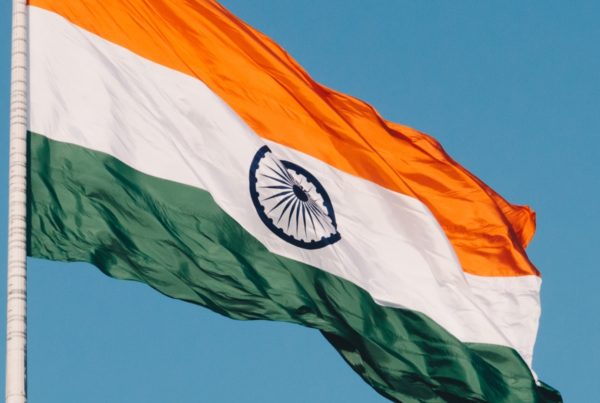It is remarkable how swiftly governments of the world from China to European Union to the United States to India, have taken decisive measures to not only flatten the curve but also to source Personal Protection Equipment (PPE) such as face masks, gloves and gowns, as well as ventilators and other hospital supplies. In addition, the governments have announced unprecedented bailout programs to manage the economic tsunami caused by the spread of the virus. The G-20 Nations have allocated $5 trillion dollars. The United Nations has allocated $2 billion dollars and the United States has set aside $2.2 trillion dollars to make sure there is no economic calamity similar to the Great Depression. Even though the style of leadership varies across nations, the swiftness has been universal either on a proactive or on a reactive basis.
In sharp contrast, businesses have been sitting on the sidelines. Sometimes, it feels like they are waiting for the dole outs from the governments instead of actively engaging them to help combat the invisible enemy. This seems to be particularly the case for large multinational enterprises whether they are based in the Silicon Valley or in New York, London or Tokyo. This is also in sharp contrast to owner managed small businesses such as restaurants and coffee shops, who, despite fighting for their own survival, are trying their best to help their customers, employees, and their communities.
Even more embarrassing is the conspicuous silence of businesses when we compare them to civil societies, NGOs, and faith-based charities such as the American Red Cross, CARE, SEWA International and the World Vision. And of course, many celebrities including Sir Elton John are organizing large scale online concerts to keep people engaged and not scared.
Sitting on the sidelines is neither wise nor beneficial to business. Large enterprises must actively deploy their resources and capabilities above and beyond their CSR initiatives. While we have some exceptions such as Bill Gates, Jack Ma, and Ratan Tata as individuals, what is needed is a Global Business Core which can organize and coordinate the fight against Covid-19 on a world-wide basis. This can be, for example, Chambers of Commerce across the world with a mission driven deployment of talent and resources.
So how can business help? What are its core capabilities that can be diverted to combat the virus?
First and foremost is the reach of large enterprises both domestically and globally. In fact, in many emerging markets such as Africa, India and Central and Latin America, their reach in remote rural places is unmatched even by the local governments.
This distribution presence is very conspicuous in India withColgate, Hindustan Unilever, ITC, Coca-Cola, and others. They are ideal partners to distribute medical supplies to the remotest places in the world. Along with the logistics (warehouses), the large enterprises also have the manpower organized by command and control similar to the military. In other words, they can execute with speed and efficiency better than the bureaucracies of the governments. The large enterprises also have supply chains in place. As we all know, a major competency of a corporation is sourcing (procurement).
In short, businesses know how to scale up in anything (sourcing, making, and marketing). They know how to execute especially in marketing. Some of the best marketers on the planet are the private sector enterprises. Increasing global awareness, educating the masses, and persuading them to follow medical advice is the secret sauce of private enterprises. It is the raison d’etre of capitalism.
So, what is lacking? The first and foremost is the courage to stand up to the institutional investors. What matters most in a global crisis is a mission driven purpose and passion. In fact, there is enough historical evidence during the World War II about how businesses worked day and night to provide support to the government’s war efforts on all sides of the war. This is because survival was at stake. The self interest was in alignment with the societal interest. Defeating the coronavirus is survival of not just humanity but also businesses. Self interest and societal interest are now two peas in a pod.
Contrary to economic thinking, the business of business is more than business. It has a societal responsibility just like any other institution. Compassionate capitalism is more powerful than cowboy capitalism. The only way businesses (capitalism) will gain admiration and respect of the society is to demonstrate its courage and commitment to proactively share its competencies and resources to solve a societal problem and rise above and beyond delivering the shareholder value.






Dear Sir ,
A very nice read. Businesses should come forward.
Need to address the problem from the front and set examples.
Regards
Dear Sir,
I really liked your perspective of corporates not able to go beyond the will of their institutional Investors. Also of the way in which corporates can become an extended arm of the government.
Very well written piece.
Thanks
Ameet Siingh
Impressed by your analysis of Covid19 affected economy and the role of businesses in boosting the crisis stricken economy.
Dear Dr. Sheth,
An excellent perspective and can’t agree with you more. This is the time for businesses to re-build their trust and credibility, not from the sidelines, but getting to the frontline.
Please stay safe and healthy.
Regards to Madhuji and you.
Bala
Great and wonderful suggestion recommended. Appreciate this. Author or any other scholars are advised to write on the structural directions of how could people of MNCs and institutional government work together to combat COVID-19. The commitment through coordination and collaboration could efficiently be executed.
Dr. Sheth
The opinion is very well articulated. Congratulations.
‘Business of business to go beyond buisness’ is what the businesses should take as their mantra to not only survive but thrive.
Thanks ????
Sir,
It is a real good thought. The statement “the business of business is more than business” is an inspiring and thought provoking one. While some of the good people (that you have identified in your article), have already recognized their responsibility, others also need to join hands.
True Sir, my only say is big corporate are running campaign with celebrities in India of awareness to fight against Covidld 19.This could be social responsibility of Corporate giants to associate their brand or corporate image in the eyes of public at large.
Small correction it should read as not running campaign